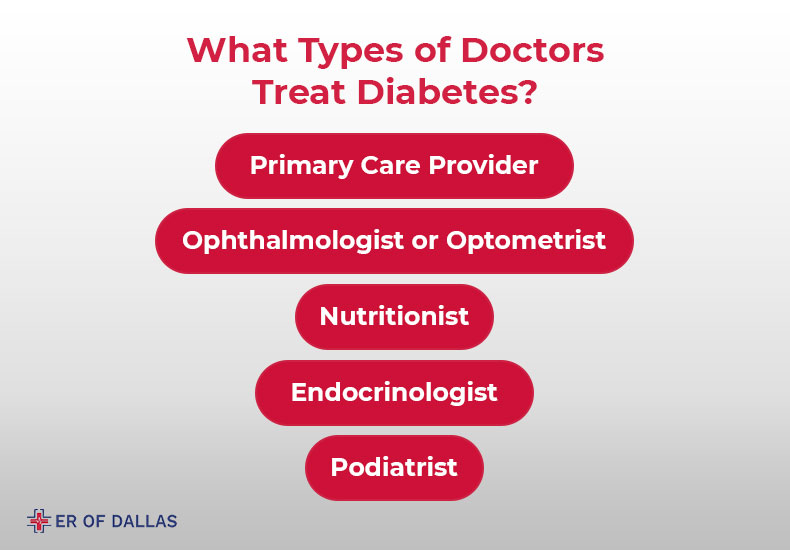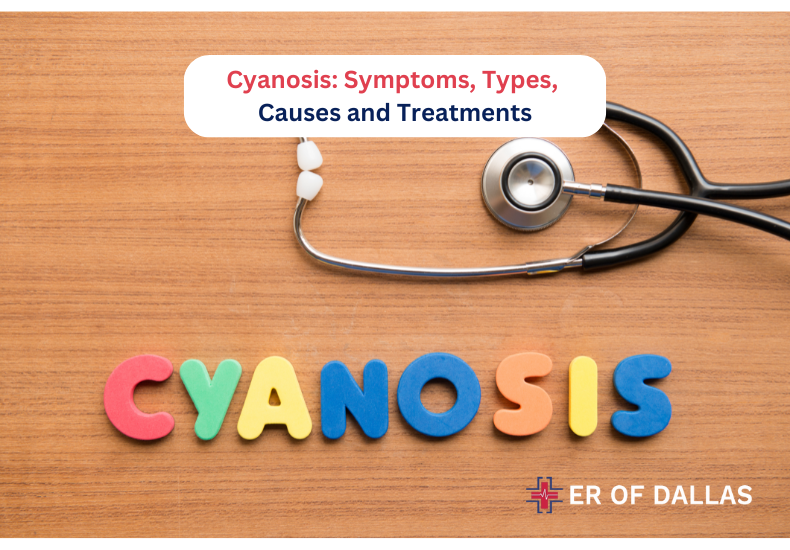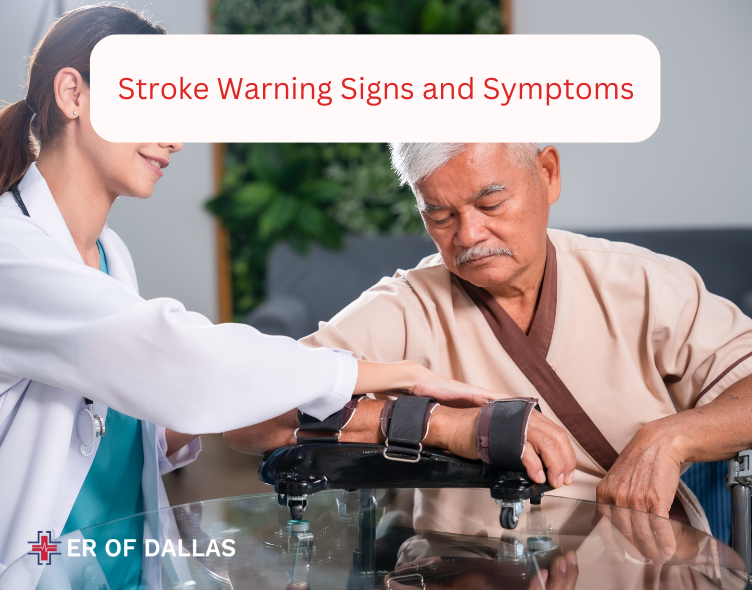An endocrinologist is a doctor who specializes in managing diabetes, although the term may not be familiar to you. The two, however, frequently go hand in hand. Here are some things to anticipate from an endocrinology consultation and how scheduling one can support the management of your diabetes. Diabetes is a long-term illness characterized by the body’s inability to control blood glucose, or sugar, levels. Diabetes is caused by either insufficient insulin production (type 1) or improper insulin utilization (type 2).
A variety of medical specialists, including endocrinologists, can guarantee that your blood sugar levels are controlled and sustained for a long and healthy life. Continue reading to find out more about the many kinds of medical experts that deal with diabetes.
What is a Diabetes Doctor Called?
Your primary care physician might refer you to a diabetes specialist if you have been diagnosed with diabetes, are on insulin, or require more specialized treatment. This expert, who focuses on endocrine system diseases, is known as an endocrinologist.
Endocrinologists complete an additional six years of training in the network of glands that generate the hormones your body needs after graduating from medical school. Because of their extensive training, they are qualified to identify and manage diseases affecting your endocrine system, including diabetes, PCOS, thyroid disorders, and reproductive concerns.
Maple can assist if you have diabetes or any other endocrine-related condition. In just a few minutes, Maple allows you to quickly connect with physicians and specialists in Canada via your computer, tablet, or phone. Furthermore, you do not need a referral to make an online appointment with an endocrinologist to be scheduled in less than a day.
How Can A Diabetes Doctor Help a Diabetic?
An essential component of your diabetes care team consists of your family physician and their medical staff. In addition to the doctor, some family practice diabetic care teams consist of nurse practitioners, clinical pharmacists, diabetes educators, nutritionists, and physician assistants. Furthermore, a lot of people see them exclusively for their diabetes because they have all of these resources in one office.
However, in more complicated circumstances, the participation of an endocrinologist in managing your diabetes is essential. You might need more specialized treatment for your diabetes than your general practitioner can offer if you’re using insulin or if it’s causing you problems. Similarly, if you don’t have adequate control over your diabetes or if you have other illnesses that are influencing your health.
Diabetes changes over time. Diabetes is a chronic condition that might alter over time, even if your doctor may help you manage it at first. It might be necessary to consult an endocrinologist for assistance with the treatment and management of your diabetes if your condition gets worse or if you start to have problems controlling it.
What Types of Doctors Treat Diabetes?
Although the patient’s primary care physician makes the diagnosis in many cases of diabetes, there are other potential sources. Since almost every system in the body is impacted by diabetes, symptoms can appear in seemingly unrelated areas, including the eyes, which are negatively impacted by high blood sugar. As a result, during a routine eye exam, an ophthalmologist or optometrist may find signs of diabetes before other symptoms appear.

Primary Care Provider
Usually, a person will visit their primary care physician or general practitioner as soon as they notice new or worrisome symptoms. Internal medicine is the area of expertise for primary care providers (PCPs), who treat a broad range of acute and chronic conditions. A PCP will frequently handle all of your medical needs, from diagnosis to treatment, if you live in a remote area with limited access to medical and specialty care.
In other circumstances, a primary care physician could decide to send you to the right experts if you need more specialized care. PCPs can refer patients to specialized care as well as coordinate care amongst various experts, ensuring that all parties are aware of the available treatment options and goals.
Ophthalmologist or Optometrist
Since diabetes affects the entire body, including the eyes, it can cause a wide range of complications that can have an impact on several organs.
Diabetes increases a person’s risk of developing some eye conditions, including:
- Diabetic Retinopathy
- Cataracts
- Macular edema
There is a significant chance of having the aforementioned illnesses, which can result in blindness if untreated. For this reason, it’s critical to routinely consult an optometrist or ophthalmologist to evaluate and treat any potential eye issues resulting from diabetes.
Nutritionist
It is crucial to pay attention to eating habits, meal quantities, and the nutritional value of the foods ingested because diabetes is a condition in which the body’s ability to metabolize sugar is impaired. However, figuring out a diabetes-friendly diet can be scary, particularly for someone who has just received their diagnosis.
Working with a dietitian can be helpful in this situation. A nutritionist can assist you in determining which items in your diet are good or bad for sustaining stable blood glucose levels, as well as educate you on how to correctly read food labels and assess the nutritional value of various foods. They can also help you establish meal plans that will support stable blood glucose levels and a healthy weight.
Endocrinologist
A board-certified physician with a focus on disorders brought on by or impacted by hormone imbalances is known as an endocrinologist. Since the pancreas secretes insulin, any problems or illnesses resulting from insulin resistance or pancreatic insufficiency—such as diabetes—are usually managed by endocrinologists.
These experts can assist in the diagnosis of diabetes as well as in the creation and execution of the most promising and successful long-term diabetes management program.
A Certified Specialist in Diabetes Care and Education
A healthcare professional who specializes in everything connected to diabetes is known as a certified diabetes educator or certified diabetes care and education specialist (CDCES). A CDCES can assist in creating personalized treatment plans for individuals with diabetes in collaboration with a treating physician or other healthcare professional.
They can assist in establishing personal treatment, lifestyle, and food objectives as well as a strategy to meet each. They can assist in instructing you on the correct handling, administration, and disposal of insulin, insulin pumps, blood glucose meters, and continuous glucose monitors. A CDCES is a crucial member of the diabetes care team who can significantly impact your ability to meet your diabetic objectives.
Podiatrist
Diabetes frequently affects the feet in addition to the eyes. Individuals with diabetes have an increased risk of developing:
- Ulcers on the foot that are open
- Neural injury, or neuropathy
- Amputation: the taking off of a bodily component
- Skin alterations
- Reduced blood flow
A podiatrist is a physician with expertise in the diagnosis and management of conditions affecting the ankles, toes, and tips.
The American Association of Podiatric Medicine Colleges. Paediatric Medical College Handbook of Information.
To assess symptoms and establish a diagnosis, podiatrists can request the necessary blood tests and imaging studies. Orthotics, custom-made shoe inserts, wound care for foot ulcers, and many other choices are available as treatments.
Diabetes Management: 5 Steps to Choose the Right Diabetes Doctor
Diabetes is a complicated illness that is greatly influenced by one’s way of life. Your blood sugar regulation is influenced by a variety of factors, including the foods you eat, the way you work, the amount of exercise you get, and many more. Consequently, there isn’t a diabetic treatment that works for everyone.

Effective diabetes care should be individualized, and comprehensive, and involve not only standard medical medication and routine exams but also guidance on nutrition and exercise. Such comprehensive care necessitates greater time and effort from the healthcare provider in addition to more thorough training and experience. Because of this, it may take years for you to locate a physician or medical facility that can offer you the comprehensive, individualized treatment you want.
Visit The Clinic’s Website To See The Doctor’s Profile
The physician need not be a specialist, but his profile should suggest that he has some training in or a particular interest in managing diabetes. See if you can find any of his interviews and see whether you agree with his points of view. Make sure his approach to patient care and philosophy are in line with your goals by paying close attention to how he handles his patients.
Visit The Clinic’s Website For Educational Resources
Some clinics devote time to creating resources and materials for patient education. This typically indicates that the team places a high value on empowering and educating its patients. This may indicate that the clinic is a suitable fit for you if you find that to be significant or if you want holistic care.
Search For The Doctor’s Name On Google
Doing a quick Google search for your doctor’s name can provide interesting results. Look for any news stories, interviews, or publications the doctor has published that mention them. This helps you understand the doctor’s specializations and areas of interest. Pay close attention to any discussions about managing diabetes and associated topics like food and exercise; this may suggest that the doctor has experience in these areas and provide you with an idea of what type of management the doctor may recommend.
Take A Look At The Doctor’s Team
Physicians aren’t the only people in medical practices. They have people around them to assist them in providing the care they require. Your encounter with the team as a whole, comprising receptionists, nurses, and allied health specialists like nutritionists and health coaches, will truly be a combined experience. In addition to assisting patients in navigating the expanding array of alternatives in nutrition, technology, services, and medication, such interdisciplinary support can assist physicians in better managing the patient’s condition across the various domains of care. Since the other members of the team will be heavily involved in your care, make sure the doctor you select has the necessary support and that you feel comfortable with them.
Contact Them
To find out how the practice treats patients with diabetes, give them a call or send them an email. Take note of the front desk staff’s helpfulness and response time to your questions. Don’t forget to see whether your insurer will cover them and if you can utilize Medisave to pay for the costs of treatment. If it’s not already included on their website, you can also enquire about their rates.
How to Take a Test at Home
Before testing, please be sure to read the instructions as each test kit is unique. You can watch how-to videos on some companies’ websites to learn how to utilize the diabetes test kit.
Shipped-In Kits
All necessary components will be included in mail-in test kits. Depending on the kit, the contents will change, but generally speaking, they include:
- A card or tube for collecting blood
- Alcohol-based cleaning
- Lancets
- A label for mailing
- Gauze
- A sack for biohazards
Fill out the blood collection card, tube, and biohazard bag with any necessary information before donating blood. Using the lancet device, pierce your finger after washing it with alcohol and allowing it to dry. Gather your blood sample and mail it in line with the kit’s instructions.
Point-of-Care Sets
Diabetes home test Kits for point-of-care testing will include:
- An A1c calculator
- An apparatus for collecting blood
- Lancets
- A tremor
Prick your finger with the lancet. Once your blood sample has been drawn, shake it and place it on the A1c analyzer according to the directions. Your findings will be available in five minutes.
Reasons to See a Diabetes Doctor
Your physician may have recommended that you see an endocrinologist if you have been diagnosed with a hormonal disorder like diabetes or thyroid. You may be wondering why you should see the specialist in light of this. Continue reading to find out more about the assistance that an endocrinologist can offer you if you are found to have one of these illnesses.

Providing Care to Non-Traditional Patients
Some patients experience the progression of diabetes as described in textbooks. They respond well to standard therapies, and with little to no interruption to their normal lives, they may control their blood sugar levels with injections or oral drugs.
Some others, despite assiduously adhering to instructions, find that traditional treatments are ineffective. In the event of such patients, an endocrinologist may be able to investigate more effective therapy options. Certain people may require specialized care for diabetes since other medical disorders may have an impact on their hormone levels. This is due to the possibility that they suffer from a hereditary disorder like cystic fibrosis. This may affect how the bodies of the patients react to the therapies.
Patients who respond well to conventional therapy may find great benefit from seeing an endocrinologist. Patients in the latter categories may find meeting an endocrinologist to be very beneficial.
Specialists in Endocrinology
An endocrinologist is a specialist in the diagnosis and treatment of diseases brought on by variations in your body’s hormone levels. He or she will be aware of what to do if traditional treatments do not yield the desired results. Endocrinologists receive more in-depth training about hormones and disorders including diabetes and thyroid than do family physicians or general practitioners. They will therefore be more equipped to manage diabetes. Basic diabetes is typically diagnosed and treated by general practitioners. However, assistance from a specialist will frequently be required.
Physicians and Endocrinologists Work Together
You don’t have to quit seeing your primary care physician when you start seeing an endocrinologist. Speaking with an endocrinologist can help you regulate your blood sugar levels and add a new aspect to your treatment plan.
Diabetes Doctor Appointment Preparation
One of the most important aspects of controlling your diabetes is routinely checking your blood sugar. To be ready for your appointment, you will need to start if you haven’t already. To assess how well your disease is being controlled, your endocrinologist will want a record of these daily readings.
To provide them with a complete picture of your health, you should also bring a summary of your food, exercise routine, and a list of all the medications you use.
Additionally, as endocrinologists specialize in diabetes, remember to prepare a list of questions in advance by sitting down. This is your opportunity to learn everything there is to know about the illness.
Diabetes Doctor Appointments: What to Expect
Your doctor will often decide when to send you to an endocrinologist if you have diabetes. You can, however, make an appointment to see an endocrinologist yourself if you believe that you require more specialist care or an alternative perspective.

Due to the chronic nature of diabetes, you should anticipate routine follow-up visits with your endocrinologist every few months. This is what to anticipate from them.
Your initial meeting with an endocrinologist will probably begin with a review of your health and family history. They will also inquire about your diet and workout schedule.
The physical portion of your visit will then begin with a check-up for excessive blood pressure, followed by a measurement and weight assessment. To check for any indications of uncontrolled diabetes, an examination of your teeth, the skin on your hands and feet, and the degree of sensitivity in these regions should come next. A blood glucose test, as well as tests on your blood and urine, should be anticipated during your visit.
Lastly, your endocrinologist will schedule a time to go over your issue in detail.
During Follow-Up Appointments, What Does a Diabetes Doctor Do?
Your endocrinologist visits won’t last as long as the first one. Rather, they will concentrate on any modifications to your prescription regimen or state of health since your last visit.
Any weight loss, changes in vision, or other physical or psychological developments since your last visit will be of interest to your endocrinologist. They will also be interested in any changes you make to your diet or exercise regimen and how those changes affect your daily blood glucose readings.
Your endocrinologist will examine your blood glucose levels at every appointment to see how well you’re controlling your blood sugar. To ensure that your blood pressure is within normal bounds, they will also monitor it.
To put it briefly, your endocrinologist is watching for any signs that your blood sugar control has changed, for the better or worse. If so, they will modify the dosages of your insulin or diabetes drugs to better meet your needs. They may also suggest other helpful gadgets.
Wrap It Up
There are numerous healthcare professionals available today who can properly manage and treat diabetes’s potential symptoms and complications. See your healthcare physician or an endocrinologist as soon as possible if you or someone you know is displaying signs of diabetes. Diabetes can be successfully and efficiently treated with the assistance of your medical team.
If you are looking for diabetes doctors near me then go to the ER of Dallas – Emergency Room for better health.











